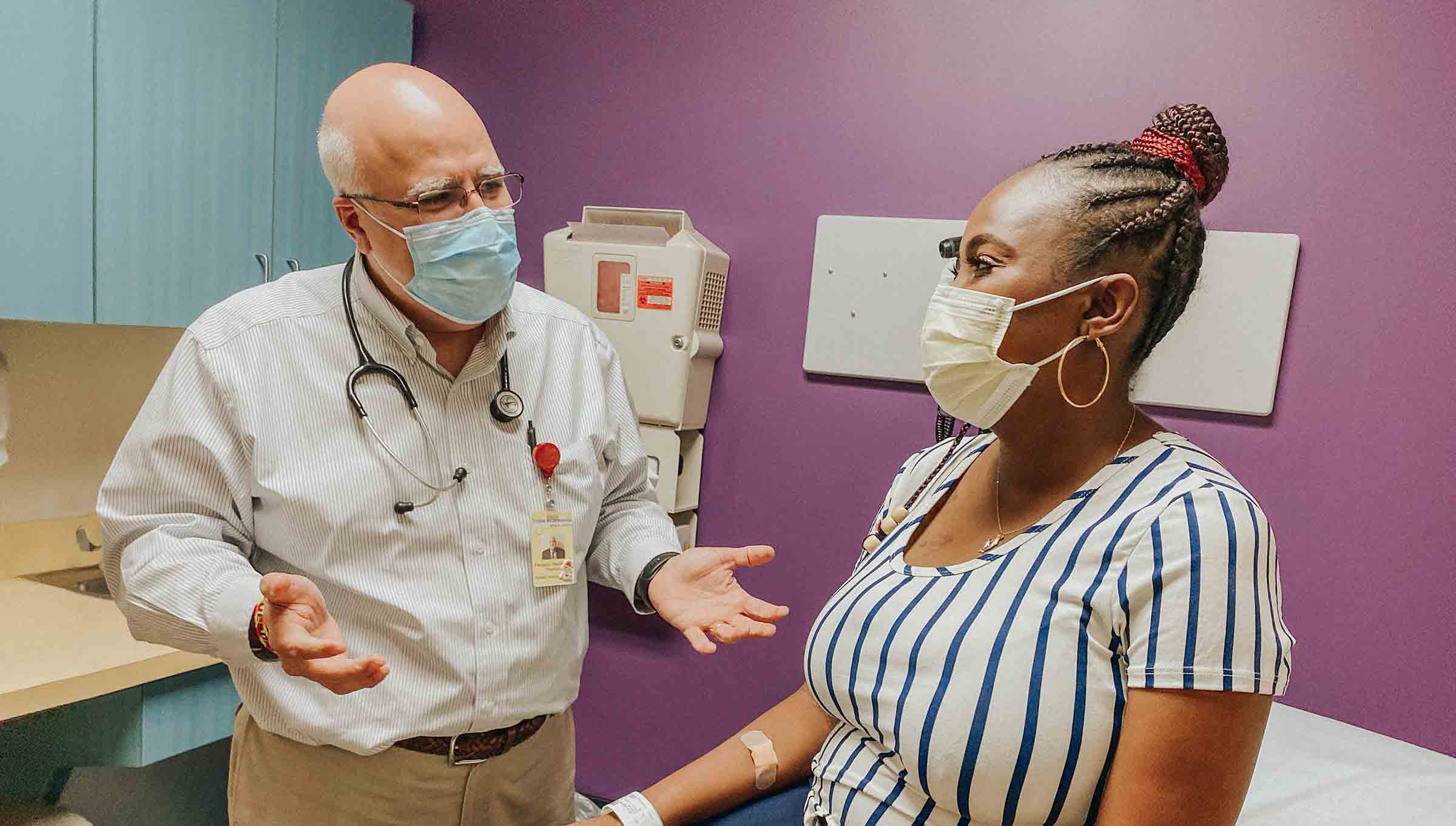Advancing Cancer Therapies for Patients
Sarah Cannon Research Institute (SCRI) is one of the world’s leading oncology research organizations conducting community-based clinical trials. Focused on advancing therapies for patients for more than three decades, SCRI is a leader in drug development. We have conducted more than 850 first-in-human clinical trials since our inception and contributed to pivotal research that has led to the majority of new cancer therapies approved by the FDA today.
In 2022, SCRI formed a joint venture with former US Oncology Research to expand clinical trial access across the country. SCRI’s research network brings together more than 1,300 physicians who are actively enrolling patients to clinical trials at more than 200 locations in 20 states across the U.S.
Sarah Cannon Research Institute (SCRI) is one of the world’s leading oncology research organizations conducting community-based clinical trials. Focused on advancing therapies for patients for more than three decades, SCRI is a leader in drug development. We have conducted more than 850 first-in-human clinical trials since our inception and contributed to pivotal research that has led to the majority of new cancer therapies approved by the FDA today. In 2022, SCRI formed a joint venture with former US Oncology Research to expand clinical trial access across the country. SCRI’s research network brings together more than 1,300 physicians who are actively enrolling patients to clinical trials at more than 250 locations in 24 states across the U.S.
Today’s clinical trials.
Tomorrow’s therapies.
SCRI offers end-to-end clinical trial site management, contract research services for biopharma and personalized medicine advisory services in one place:
- Our Site Management Organization (SMO) delivers operational, regulatory and other centralized research support services for industry-sponsored and investigator-initiated trials.
- SCRI Development Innovations, our global, full-service Contract Research Organization (CRO) works in concert with SCRI's SMO, specializing in oncology clinical development services from first-in-human studies to regulatory approval.
- Our Personalized Medicine program transforms real-world data into actionable insights so we can match the right therapy to the right patient at the right time.
- Driven by our commitment to expanding clinical trial access, we are finding new ways to remove barriers and ensure patients receive the cutting-edge therapies they need.
Today’s clinical trials.
Tomorrow’s therapies.
SCRI offers end-to-end clinical trial site management, contract research services for biopharma and personalized medicine advisory services in one place:
- Our Site Management Organization (SMO) delivers operational, regulatory and other centralized research support services for industry-sponsored and investigator-initiated trials.
- SCRI Development Innovations, our global, full-service Contract Research Organization (CRO) works in concert with SCRI's SMO, specializing in oncology clinical development services from first-in-human studies to regulatory approval.
- Our Personalized Medicine program transforms real-world data into actionable insights so we can match the right therapy to the right patient at the right time.
- Driven by our commitment to expanding clinical trial access, we are finding new ways to remove barriers and ensure patients receive the cutting-edge therapies they need.

Collaboration in action
SCRI was the first to offer the revolutionary CRISPR/Cas9, a cellular gene-editing therapy, for Sickle Cell Disease through our research program at TriStar Centennial Children’s Hospital.
Offering the groundbreaking CRISPR/Cas9 therapy required not only the expertise of a center that conducted transplant and cellular therapies, but also experienced research leaders and physicians who specialized in transplant therapies for disorders including Sickle Cell Disease. With these unique qualifications, combined with its robust research infrastructure, SCRI at TriStar Centennial Children’s Hospital was equipped and prepared to care for patients with this innovative treatment and became the first site to open the clinical trial for Sickle Cell Disease.
This research helped lead to a significant breakthrough in the science of gene-editing, representing the first gene-editing technology approved by the U.S. Food & Drug Administration for the treatment of Sickle Cell Disease and Transfusion-Dependent Beta Thalassemia shortly thereafter. Not only does SCRI’s contribution to this research give hope to people facing these disorders, but it will also continue to advance care and impact the future of research.
This research helped lead to a significant breakthrough in the science of gene-editing, representing the first gene-editing technology approved by the U.S. Food & Drug Administration for the treatment of Sickle Cell Disease and Transfusion-Dependent Beta Thalassemia shortly thereafter. Not only does SCRI’s contribution to this research give hope to people facing these disorders, but it will also continue to advance care and impact the future of research.
Meet our cancer research leaders
Get to know the oncology research experts across our network. With more than 1,300 physicians engaged in research, we provide access to cutting-edge clinical trials in more than 200 locations. Meet our team of disease site experts, research operations leaders and more.

Dee Anna Smith, CEO
As CEO of SCRI, Dee Anna Smith leads the organization’s overall mission and vision to make a global impact on the next generation of cancer care.

Howard "Skip" Burris, MD, President
Dr. Burris joined SCRI in 1997 to create the first drug development program outside of an academic setting and oversees all of SCRI’s clinical operations and research strategies. An oncology key opinion leader and former ASCO president, Dr. Burris has influenced new cancer treatment standards for more than three decades.

David Spigel, MD, CSO
Dr. Spigel joined SCRI in 2003, and, as chief scientific officer, he oversees all scientific aspects of SCRI’s clinical trial program, working with the research physician leaders to ensure the best new agents and studies are available to our patients.